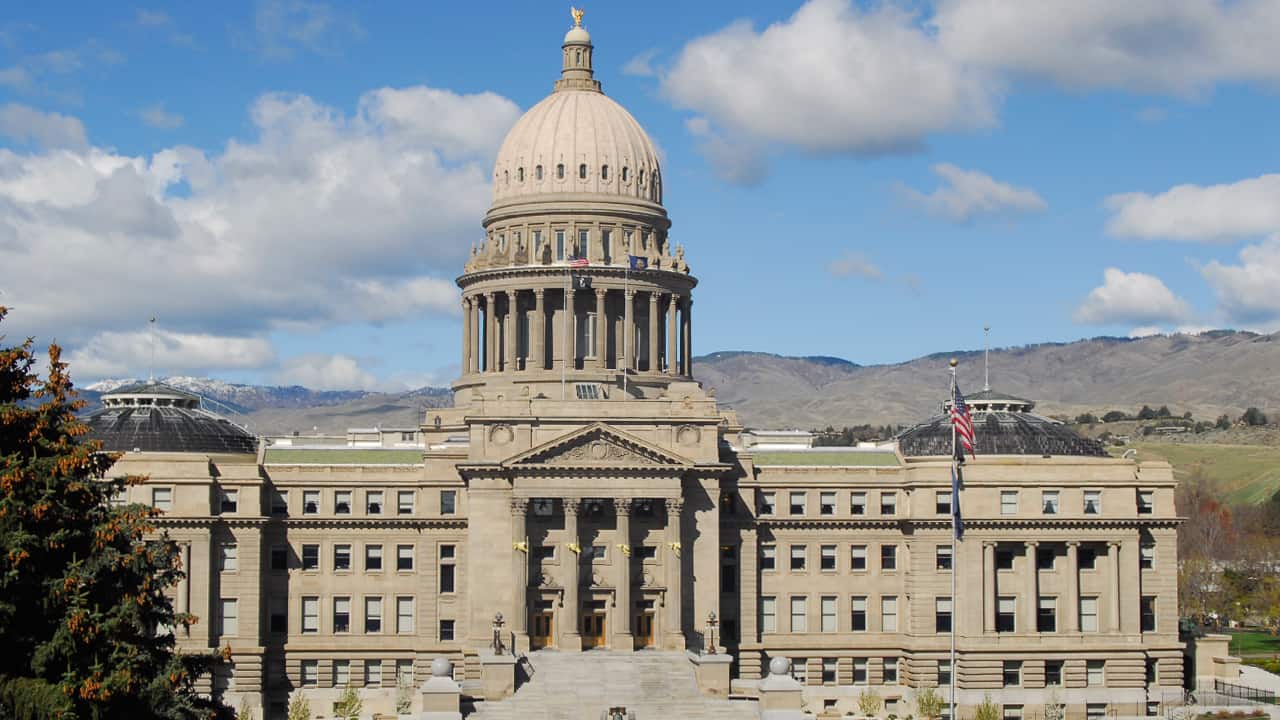


If Idaho’s framers wanted the governor to write laws and spend Idahoans’ money, they would have written those responsibilities into the Idaho Constitution—but they didn’t. Indeed, a major virtue of Idaho’s government is how it separates the executive and legislative branches with the principle of the Legislature as the law-writing and appropriating branch, and the executive branch to faithfully execute those laws.
Unfortunately, Gov. Brad Little’s actions during the Covid pandemic revealed weaknesses in the separation of powers in Idaho’s government. The Legislature, seeing those weaknesses, acted by passing SJR102, a Constitutional Amendment for restoring and preserving the Legislature’s lawmaking and spending authority.
The constitutional amendment would allow the Legislature to call itself back into a limited session if 60% of the members of both bodies signed a written petition requesting it. SJR 102 would also limit subjects lawmakers could consider during a special session.
Why is this necessary?
Recall in 2020, during the pandemic, how Governor Brad Little declared an emergency and called a series of press conferences to issue stay-at-home orders, declare some Idahoans as essential and others as non-essential, close churches, close schools, and close some businesses (but not state liquor stores). He even threatened some businesses with losing their licenses if they defied his “orders.” The “emergency” was extended month after month. Many in the Legislature wanted to protect businesses, schools, and churches from these unprecedented orders by the governor, but they couldn’t because only the governor may call for an extraordinary legislative session. The Legislature was hobbled, and the governor was empowered.
Further, after the 2020 legislative session concluded in March, the U.S. Congress approved COVID relief funds. At that time, it was estimated by Little that Idaho would receive $1.25 billion — much more was ultimately provided, but this was the initial amount. Rather than call the Legislature back into session to have the Legislature (representing the people across Idaho) appropriate the money, the governor announced the formation of a Coronavirus Financial Advisory Committee to oversee the distribution of this huge sum of money. The governor picked the committee members and appropriated the money before the next session convened in January 2021. Had the Legislature been able to call themselves back into session, they could have and would have acted in their proper role of appropriating Idaho budget money.
Many have forgotten how the governor also extended the deadline for the May 19th, 2020, primary (mail-in only) ballots until June 2nd. While the governor claimed he was not moving the primary by extending the deadline for mail in ballots, he effectively did so. Again, if the Legislature could have called itself into session, they could have addressed the need to change an election date by amending the statute instead of the governor doing it unilaterally. The governor circumvented Idaho election law, making new election laws himself, which is unconstitutional and a bad precedent.
Other examples of the governor’s overreach could be given, but the point is very simple: giving the Legislature the power to call themselves into session provides power to “check” a governor who usurps duties normally reserved for the Legislature. This strikes an important balance. Legislators stand for election every two years versus every four years for the governor. If a future Legislature were to abuse this power, the voters could hold them accountable at the next election cycle.
Some claim this constitutional amendment would change the character of the citizen legislature or begin moving it to a more full-time body. Keep in mind there are several constraints in SJR102 preventing a move to a full-time legislature.
First, it requires a supermajority of 60% of both the Senate and House to reconvene. Second, it requires identifying the specific subjects to be considered during a special session and limits the Legislature’s actions to those subjects. Third, the Legislature, if it really wanted to be full-time, already has that capacity by simply not adjourning and staying in Boise indefinitely — but it has never done so.
The Legislature has no fixed end date, just a target, but it almost always finishes its work by the end of March or early April each year. Further, SJR102 adds the words “part-time legislature” to the Constitution, making it clear that the legislature is not year-round.
Another interesting case in point for the need of the constitutional amendment came right after the 2021 legislative session. The Legislature recessed, but didn’t adjourn until November 17th, and it didn’t do so to stay in Boise to write and pass more laws. Instead, it stayed recessed to avoid a repeat of the 2020 session scenario when the governor took many legislative duties onto his own shoulders. The Legislature needs this SJR102 amendment to retain its constitutional authority over lawmaking and spending, even in an emergency.
Finally, giving legislators the ability to return to the Capitol would be a reminder to any governor that adjournment does not end the Legislature’s authority for the year. SJR102 preserves the Legislature as the proper branch of government for writing laws and deciding how taxpayer dollars are spent. Idaho is a representative republic, not a tyranny or monarchy, and that includes the months between legislative sessions. SJR102 restores and strengthens the separation of powers intended by the framers of Idaho’s Constitution.


